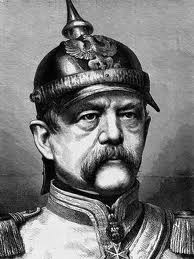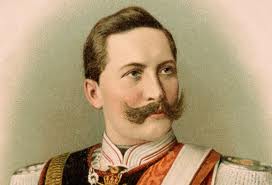 |
| 19th century German Flag |
19TH CENTURY
 |
| Otto von Bismarck |
In the 18th and 19th century the German state Prussia began to rise to power along side of the other powerful German state Austria. The Prussian kings were very successful in expanding and modernizing the state along with creating a military and creating a bureaucracy. Prussia was also very tolerant of different religions (Catholic and Jews being the primary religions).
 |
| Napoleon |
After being defeated by Napoleon's armies Prussia reformed their state helping the state become the strongest state and after Napoleon's defeat in 1814-1815 the German Confederation made up of thirty-eight states replaced the Holy Roman Empire.
 |
| Thaler Currency |
The Customs Union: In 1934 Prussia lead eighteen German states (not
including Austria) to create the Customs Union which enhanced the economic efficiency. This also lead to Germany being the main economic unit during the Industrial Revolution. Prussian Thaler became the
common currency. |
| King Louis Phillipe |
1848 French Revolution: The French overthrew King Louis Phillipe which created uprisings throughout Germany and panic. Local leaders of Germany met and discussed that uniting Germany would be the best idea but Prussia denied the request. The groups continued and became political parties, there was a final abolition of feudal property structures, and the revolutionaries colors (black, red, and gold) became Germany's colors. (1)
 |
| Otto von Bismark |
Otto von Bismarck: Started out as a rebelious child and an unlikely candidate to have any political success in fact was very successful. While Bismarck was chancellor Prussia defeated Austria in 1866 and France in 1870 and 1871 Germany became a federal state under Emperor Wilhelm I.
 |
| Emperor Wilhelm I |
Bismarck also tried to form alliances around Germany so they wouldn't be surrounded by hostility but Wilhelm II didn't care for Birmarck at all and fired him in 1890
 |
| Emperor Wilhelm II |
3. <english.upenn.edu> November 15th, 2011
4. <coinquest.com> November 15th, 2011
5. <simple.wikipedia.org> November 15th
6. <ww2incolor.com> November 15th, 2011


